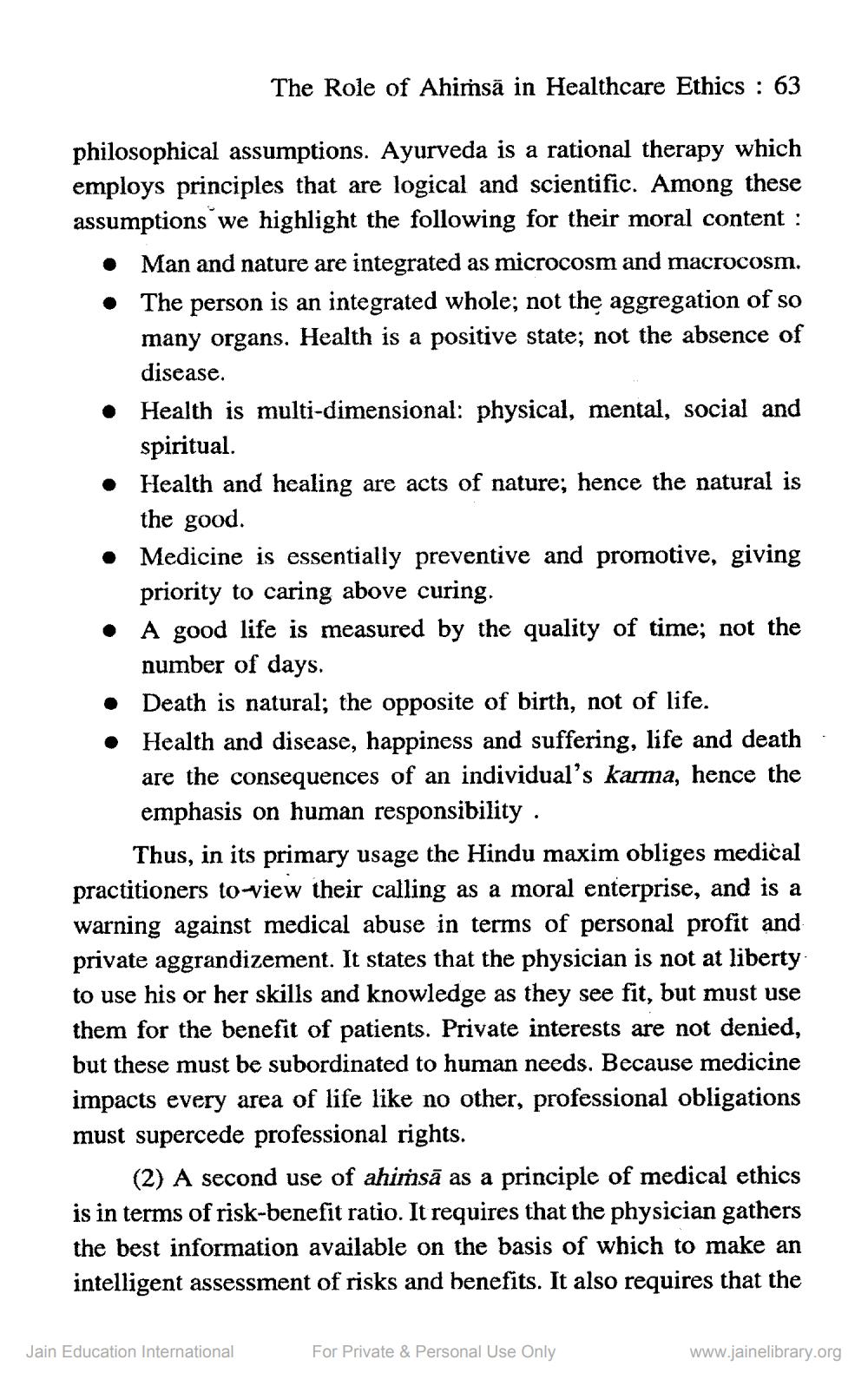________________
The Role of Ahiṁsā in Healthcare Ethics : 63
philosophical assumptions. Ayurveda is a rational therapy which employs principles that are logical and scientific. Among these assumptions we highlight the following for their moral content :
• Man and nature are integrated as microcosm and macrocosm. • The person is an integrated whole; not the aggregation of so
many organs. Health is a positive state; not the absence of
disease. • Health is multi-dimensional: physical, mental, social and
spiritual. • Health and healing are acts of nature; hence the natural is
the good. Medicine is essentially preventive and promotive, giving
priority to caring above curing. • A good life is measured by the quality of time; not the
number of days. • Death is natural; the opposite of birth, not of life. • Health and disease, happiness and suffering, life and death
are the consequences of an individual's karma, hence the emphasis on human responsibility.
Thus, in its primary usage the Hindu maxim obliges medical practitioners to view their calling as a moral enterprise, and is a warning against medical abuse in terms of personal profit and private aggrandizement. It states that the physician is not at liberty to use his or her skills and knowledge as they see fit, but must use them for the benefit of patients. Private interests are not denied, but these must be subordinated to human needs. Because medicine impacts every area of life like no other, professional obligations must supercede professional rights.
(2) A second use of ahimsā as a principle of medical ethics is in terms of risk-benefit ratio. It requires that the physician gathers the best information available on the basis of which to make an intelligent assessment of risks and benefits. It also requires that the
Jain Education International
For Private & Personal Use Only
www.jainelibrary.org




